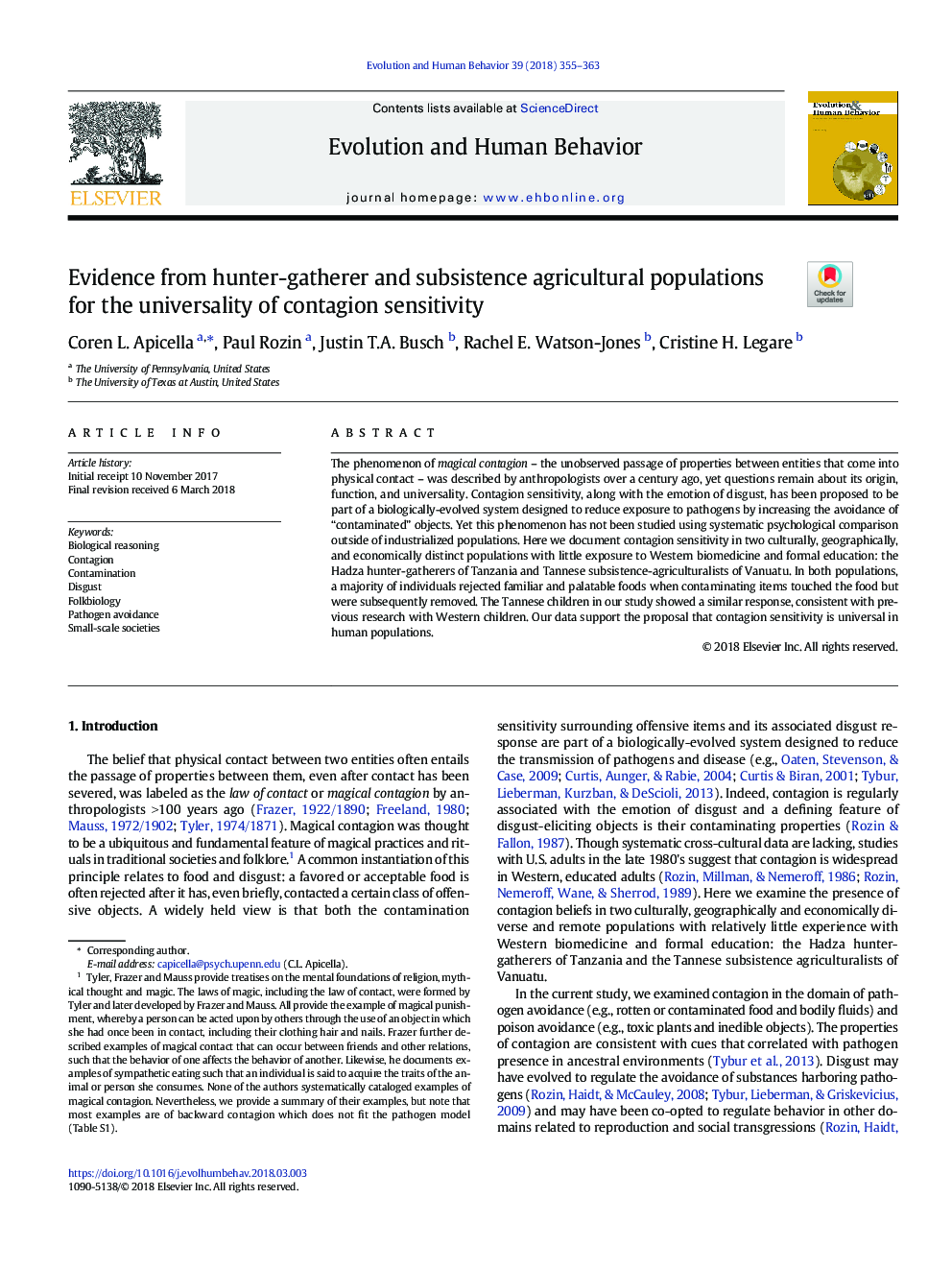| Article ID | Journal | Published Year | Pages | File Type |
|---|---|---|---|---|
| 7316330 | Evolution and Human Behavior | 2018 | 9 Pages |
Abstract
The phenomenon of magical contagion - the unobserved passage of properties between entities that come into physical contact - was described by anthropologists over a century ago, yet questions remain about its origin, function, and universality. Contagion sensitivity, along with the emotion of disgust, has been proposed to be part of a biologically-evolved system designed to reduce exposure to pathogens by increasing the avoidance of “contaminated” objects. Yet this phenomenon has not been studied using systematic psychological comparison outside of industrialized populations. Here we document contagion sensitivity in two culturally, geographically, and economically distinct populations with little exposure to Western biomedicine and formal education: the Hadza hunter-gatherers of Tanzania and Tannese subsistence-agriculturalists of Vanuatu. In both populations, a majority of individuals rejected familiar and palatable foods when contaminating items touched the food but were subsequently removed. The Tannese children in our study showed a similar response, consistent with previous research with Western children. Our data support the proposal that contagion sensitivity is universal in human populations.
Related Topics
Life Sciences
Agricultural and Biological Sciences
Ecology, Evolution, Behavior and Systematics
Authors
Coren L. Apicella, Paul Rozin, Justin T.A. Busch, Rachel E. Watson-Jones, Cristine H. Legare,
